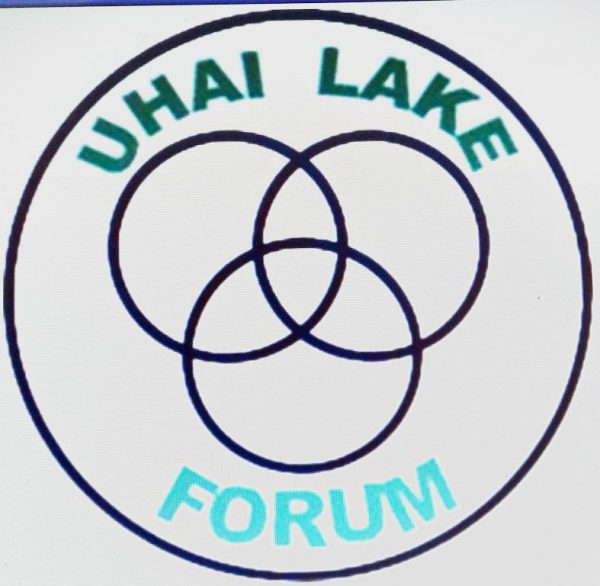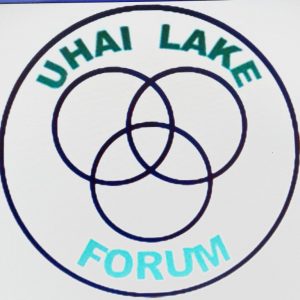Improved Uhai Locally Produced Energy Saving Cookstove Device
Uhai Lake Forum works for and with the residents of Lake Victoria Basin, particularly those in Kenya to empower them, so they can chart their own destiny in socio-economic, political, and cultural spheres. While ULF services may benefit everyone, its main target group includes resource user groups, such as women for stove making.


Overview of the project

Uhai Lake Forum (ULF) is a civil society organization based in Kisumu City, Kenya. ULF works in collaboration with the Kisumu County government municipality, among other partners, to address climate change issues through sustainable development of improved energy devices with women and youths within the urban and peri urban centres of Kisumu City,
ULF aims to address issues of access to energy and electricity among the citizens living within and around the suburban areas of the Kisumu City municipality.
One of the key activities being implemented by Uhai Lake Forum is to increase access to a locally fabricated Uhai improved cookstove, which saves more than 50% energy compared to the local cookstoves currently being used, and sold in the market.
Uhai Lake Forum is working very closely with a number of women and youth groups to train them and build their capacities on how to:
- make the improved cookstoves easily available within the city of Kisumu
- collaborate with the municipality or County Government of Kisumu to ensure that the device is readily available to all members of the community at affordable prices
- make sure that the products address the issues of climate change, of improving the health of the users, in order to ensure that we have a healthy and a sustainable city
This project aims to establish a mechanism through which women can gain greater economic benefit from their activities, secure a more stable income, and have the means to save, and build a better future for themselves and their families.
The main activities will be to reinforce the women groups to which most women belong, the establishment of improved cook stove distribution service, the access to financial services, such as savings products and micro-leasing facilities, and the creation of direct market channels between women/women groups, generating higher income returns for women.
The increased use of improved cook stoves will also be a key activity in rural and urban areas. The focus of the project will be on men, youth, and women through building institutions with women interests at heart as a means of opening up for them all existing opportunities to address climate issues within the city of Kisumu.
To reduce emission of green house gas into the atmosphere by using locally manufactured improved cookstove
Pilote operation, experimentation
01/01/2016 - 01/01/2022
While the project is still ongoing, the following results have been achieved:
- Over 8 women groups have been trained and have become skilled, so women are already making the devices
- At least 6,800 units of Uhai cookstoves have been fabricated, sold and are in use
- More than 30 youths are engaged in the making of improved cookstoves
The project received funds through Act Change Transform, which was funded by the Danish Embassy, from the CAFOD (Catholic Agency for Overseas Development,) UNDP, and UN Women.
organisation
Uhai Lake Forum (ULF) is committed to implement a number of activities, including:
- I. Sustainable Natural Resource Management: through this programme, nature, which involves the environment and the people living in it, is of vital interest to ULF. The organisation advocates for strict adherence, observance, and protection of the rights and laws protecting the environment (nature.) Human activities on the environment, from which they derive their livelihood, and upon which their lives depend on must therefore be monitored and regulated, so that the environment comprising of water and its various sources, land, soils, and forests, among others, can continue to accrue benefits to the current and future generations in a clean and sustainable manner. The key among the activities is to include addressing aspects of climate change by documenting sources of green house gas emissions, and assess access to energy emission. Though the promotion of energy devices, which manage emission sources, and reduce threats to global warming, the organizations aims to contribute to reducing global temperatures as required in the Paris Agreement.
- II. Peace building and Conflict Transformation: peace underpins everything UFL does. It begins by individuals, groups and then extends between people and their natural environment. Sustainable, rather than short-lived peace, is the core advocacy concern for the organisation, hence it invests in programmes, and projects that address the triggers and root causes of conflicts and violence among the target-communities, and across gender and generational lines. Key perpetrators and victims of violent conflicts are trained to become agents of change among their peers and partners towards peace building agenda.
- III. Good Governance and Human Rights Protection: “bad” governance, characterised by recurrent corruption, lack of respect for the rule of law, impunity, and human rights violation, often threatens the very fabric of our society. Both duty-bearers and rights-holders have a role and responsibility to change the governance status of their respective counties. Through this programme, ULF seeks to strengthen the voice of the citizens to meaningfully participate in all matters affecting their lives, including demanding for good governance, and the respect and protection of their rights. Empowered citizens will effectively engage and negotiate with the duty- bearers to fulfill their duties, including account for actions and or inactions.
- IV. Health (HIV/Aids) Prevention and Management: poor health, and specifically the alarming rate of HIV/Aids prevalence among ULF target groups also necessitates the organisation’s action, as it has always endeavoured in the recent past. It seeks to continue its intervention therein through behaviour change, communication, and livelihoods promotion among the infected and affected, families, as well as the population at-risk of being infected. Prevention of new HIV/Aids infections, and positive living are some of the major outcomes anticipated from the implementation of this programme among ULF target groups.
in collaboration


